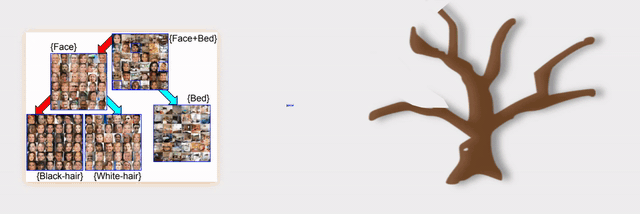GAN-Tree: A GAN framework for Generating Diverse Data
Generative Adversarial Networks (GANs) are a class of Neural Networks, which can be used for modeling the underlying data distribution from a given set of unlabeled samples. GAN comprises of two competing networks, a generator, and a discriminator. The generator learns to map a random vector to the high dimensional data such as image, while the discriminator network learns to discriminate between the real and the synthesized samples. Finally, this competition leads to the generation of realistic samples, which are undiscriminating to human observers. These models are of prime importance in modern AI research with enormous potential towards realizing Generalized AI.

Despite the success of GAN, the potential of such a framework has certain limitations. As an example, let us consider a target dataset consisting of an equal number of dog and human faces without any corresponding label. A GAN with single-mode prior may lead to mode-collapse, where it generates samples from either one of the two inherent target modes. Though mode-collapse can be avoided by incorporating certain improved learning techniques, a single-mode GAN generates samples with mixed features of dog and human face, thus allowing generation of implausible samples which is certainly undesirable. The failure of such a framework is attributed to the inability of the generator to learn a discontinuous mapping, which can intuitively allow a sudden transition from human to dog face upon traversal in the latent space. In the research work done at Video Analytics Lab at IISc, the authors (Jogendra, Maharshi, Dakshit and Venkatesh Babu) have proposed an elegant solution addressing this limitation by presenting GAN-Tree, which follows a hierarchical divisive strategy that caters to such discontinuous multi-modal datasets.
Project Page : https://github.com/val-iisc/GANTree
Reference : Jogendra Nath Kundu, Maharshi Gor, Dakshit Agrawal, R. Venkatesh Babu, “GAN-Tree: An Incrementally Learned Hierarchical Generative Framework for Multi-Modal Data Distributions”, accepted in IEEE International Conference on Computer Vision (ICCV) 2019.




